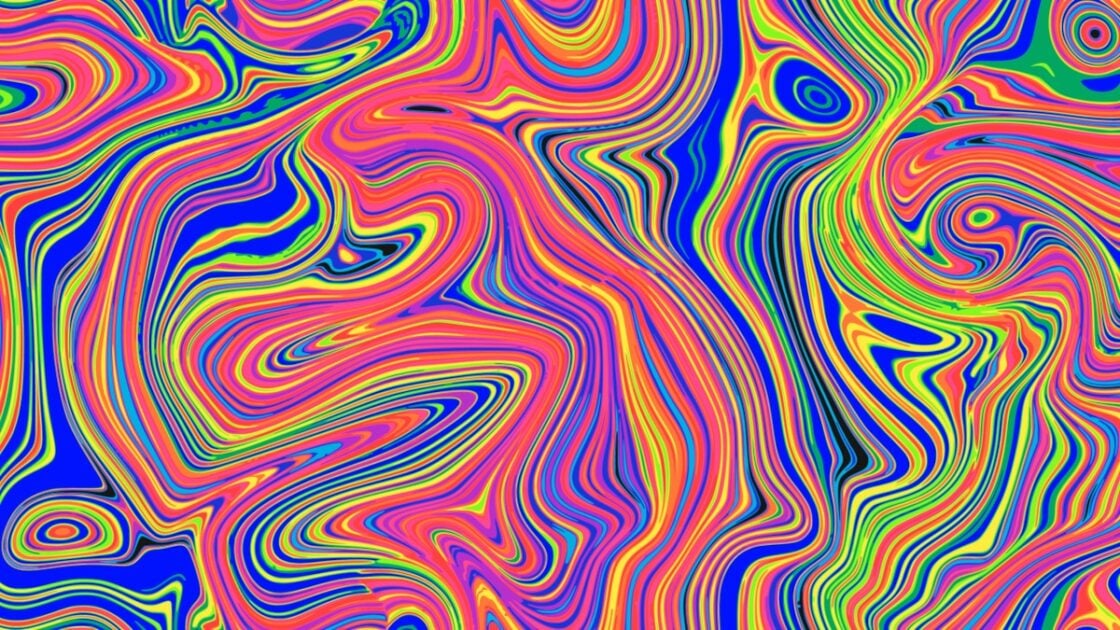What is LSD (acid)?
LSD, also known as an acid, is an illegal hallucinogenic drug that has gained popularity for its mind-altering qualities.

LSD (Lysergic acid diethylamide) is an illegal psychedelic drug commonly known as ‘acid’. It is a chemical solution that was first created in the 1930s and has since become a popular drug recreationally. Acid normally comes in the form of very small pieces of paper, called tabs or blotters, that have been soaked in the solution. It can also sometimes come in the form of tiny pellets, gels or tablets.
Whatever form LSD comes in, it is normally held under the tongue or chewed. It can take between 30 minutes to 45 minutes to feel the effects of acid and the effects will peak after around 2 hours.
What are the short-term effects of LSD (acid)?
The high you get from taking LSD is known as a ‘trip’ or ‘acid trip’, and lasts a very long time – typically between 8 to 12 hours.
Acid trips don’t necessarily produce the predictable effects and no two trips are the same, even for those who have used the drug before. Psychedelic experiences while on acid can be very intense; this can be received positively or negatively by the user. How you experience an acid trip can depend on various factors, such as your mindset at the time, who you are with, your surroundings, dosage and more.
As is the case with most illegally manufactured drugs, it is difficult to know the strength of a tab of acid, so it is always advisable to start with small doses.
How an LSD trip feels
LSD trips can make people feel euphoric and thoughtful. Users may feel especially silly, laugh a lot or view the world around them with a childlike sense of wonder.
Sensory experience is heightened; mundane things in life can seem infinitely fascinating, but also overwhelming depending on the intensity of the trip. Users may find themselves thinking in new and interesting ways, or gaining a new perspective on issues in their lives. Some users may find their trips very personally meaningful.
LSD and hallucinations
Some visuals may happen, ranging from small visual or colour changes (such as patterns on wall moving or lines on a picture squiggling) to complete changes of how someone perceives their environment. Visual hallucinations can occur both within your mind (closed-eye hallucinations) and in the world around you (open-eye hallucinations). LSD may also cause users to experience sounds differently, or to experience sound-related (auditory) hallucinations.
Visual experiences when your eyes are closed can range from bright colours and geometric patterns to seeing elaborate dreamscape-visions. Open-eye hallucinations can involve seeing moving patterns on surfaces around you; the colours of objects changing or becoming brighter; or, at higher doses, objects around you transforming or you seeing things that aren’t really there.
LSD and addiction
LSD (acid) is not generally thought of as addictive or habit-forming because a dose that produces psychedelic effects will do little to nothing if repeated in the following days. It is possible, however, to become very attached to the spiritual or psychological aspect of the experience and take it frequently as a result.
Risks associated with LSD
Due to its potency, the dose used to trip on acid is below the toxic dose, making overdose highly unlikely. However, there are a number of substances often sold as LSD that have very different effects and toxicities. Due to the unregulated and illegal nature of the drug market, it is difficult if not impossible to ever know exactly what you are getting.
LSD can also impair a user’s judgement and result in odd behaviour. This may make them more likely to do something like walk out into a road or get into some other situation where accident and injury is possible.
If you or someone you know is on an acid trip, it is better to remain in a safe, familiar environment such as your home for the duration of the trip and to spend the time with a friend or loved one who can help in the event that something goes wrong.
Pre-planning a trip to ensure that you are in the right headspace and environment to remain as safe as possible throughout the experience can reduce the risks of something going wrong.
A ‘bad trip’ on acid
Acid trips can be very physically and mentally draining, regardless of whether someone has a ‘good’ or ‘bad’ trip.
Taking acid can also be very overwhelming and generate a lot of anxiety, panic and confusion. A user may find themselves thinking obsessively about their life or experience a lot of social anxiety, and this may make them feel tense or afraid. They may also find their mind drifting to painful moments in their lives or reflecting on aspects of themselves they may struggle with, which can make someone feel sad or anxious. If a user finds themselves experiencing a bad trip, this can be very upsetting, as the experience can last a long time.
If you want to help someone who is experiencing a bad trip:
- Move the person to a quiet non-stimulating environment
- Reassure them everything is going to be okay while speaking gently and quietly
- Encourage them to breathe slowly and deeply to prevent hyperventilation
- Remind the person that the effects of the drug will eventually wear off
- Remove to hospital if worried or unsure about whether the person is experiencing a drug emergency
Find out more about how to cope with a bad trip or high while taking drugs.
LSD and mental health
If a person is going through a difficult time psychologically, they may be more likely to experience a bad trip, and bad trips can be potentially very traumatising and harmful.
Though it is very rare, it is possible for those who take LSD (acid) to experience psychotic symptoms for some time after. There is a greater risk of this happening to someone with a pre-existing psychiatric condition or a family history of psychosis, schizophrenia or mood disorders.
Due to its psychedelic effects, people with a family history of psychosis, paranoid schizophrenia or mood disorders are advised to avoid LSD. This is because psychedelic drugs can trigger psychotic illness within people who are genetically predisposed to develop them.
LSD and the law
Under Schedule 1 of the Misuse of Drugs Act it is an offence to supply, possess or produce these drugs. Find out more about drugs and the law in Ireland.
Supports and Services
- Drugs.ie: Online information and support for drug and alcohol use. Includes a national directory of drug and alcohol services
- HSE Drugs, Alcohol, HIV and Sexual Health Helpline: Freephone 1800 459 459.
- Find a local service through the National Directory for Drug and Alcohol Services at Drugs.ie
- You can contact Youth Information Chat, an online service that can put you in touch with Youth Information Officers based all around the country, for more general information
Feeling overwhelmed and want to talk to someone?
- Get anonymous support 24/7 with our text message support service
- Connect with a trained volunteer who will listen to you, and help you to move forward feeling better
- Whatsapp us now or free-text SPUNOUT to 50808 to begin.
- Find out more about our text message support service
If you are a customer of the 48 or An Post network or cannot get through using the ‘50808’ short code please text HELLO to 086 1800 280 (standard message rates may apply). Some smaller networks do not support short codes like ‘50808’.






